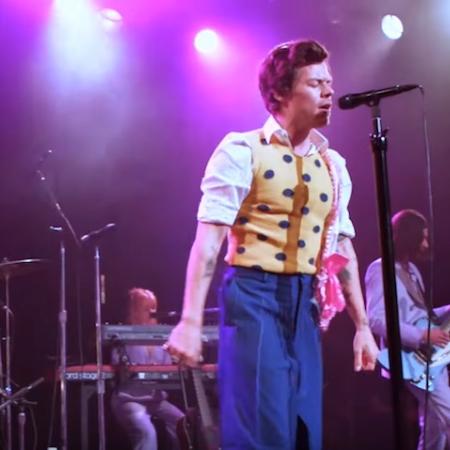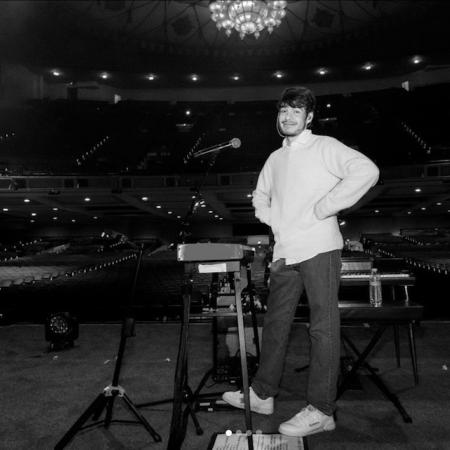"Are you happy? Is everything a joke or are you working on your self image today? Did you make it? Has everything you've seen from all your friends made it harder to pretend that it's okay?" asks Daffodils frontman Theo Spike Salmon in the titular track from the band's latest 'Boys' EP, shedding some much needed light on the importance of self-love in one's mental health journey and challenging gender stereotypes.
This championing of prioritising one's self makes Theo a perfect fit for Converse's new 'Love Fearlessly' collection, inspired by the power of self-love and being unafraid to own who you are. The new collection includes bright red hues, heart detailing, and 'Love Yourself' messaging throughout.
We spoke with Theo Spike Salmon to discuss what self-love means to him, the importance of looking after yourself, and the emotional connection that music has with people...
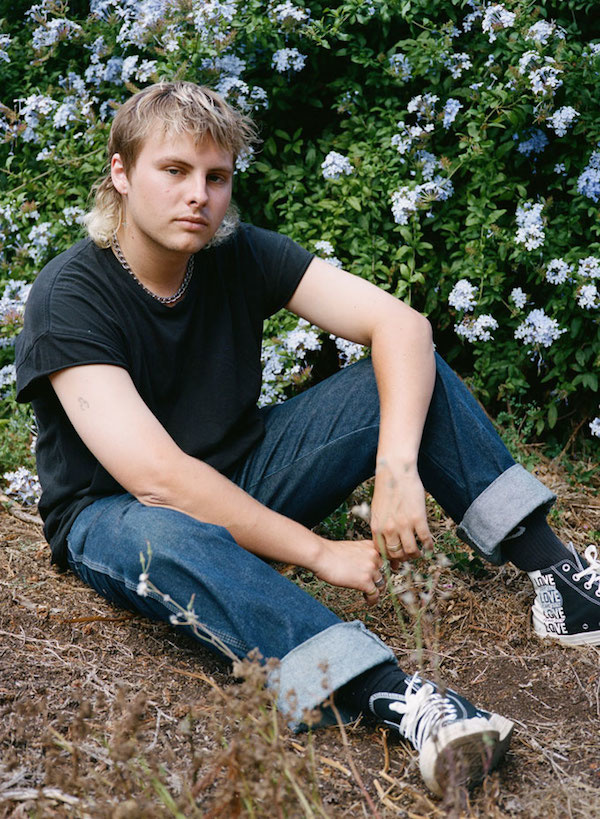
[Theo wears the Chuck Taylor All Star 'Love Fearlessly' Canvas High Top in black throughout.]
COUP DE MAIN: It’s really cool to see a band like Daffodils exist, where you’re talking about things that are relatable like growing up, but also exploring important issues like mental health. Do you think it’s a conscious thing, or just something that was always going to be present in your music?
THEO SPIKE SALMON: When I'm writing lyrics, that was a big part of how I was like growing up, and through high school and through the last couple of years, a lot of what I think about is to do with my mental health. Then a lot of what I write is just what I'm thinking about. So it just kind of crosses over like that. But I think it's important that stuff is talked about in music. I don't know if it's a conscious thing. I've been consciously trying to write songs that are not about that at the moment. But that's just because that's what I tend to write most stuff about. Growing up and dealing with mental illness and all that stuff is complicated. So it's important to get it out. And the way I find it easiest to do that is by writing about it.
CDM: What do you think it is about those teenage years that make ideas around mental health and those issues feel so big?
THEO: I think it's such a tumultuous time for pretty much everyone. I don't know anyone who didn't deal with some shit when they were a teenager, everyone's hormonal as fuck, and it kind of makes sense that it's a big part of stuff because that tends to be people learning how to deal with things and how to be the way they want to be. A lot of that stuff happens when you're a teenager, so I feel like that's why it's such a big part of it.
CDM: Do you think it's important for people with a platform to be vocal and honest about mental health issues in society? I feel like in the past, it's been kind of a taboo subject.
THEO: I do. People have their own ways of dealing with things, so if it's not something that you feel comfortable talking to an audience about, I think that's at the discretion of the artists. But I think that it shouldn't be a taboo thing to talk about and there's a lot of stigma around talking about your mental health. I think that that's something that I think pretty much everyone knows is something that needs to change.
CDM: Do you think it has changed over your years of growing up?
THEO: Yeah! What I've seen from my friends and stuff as well is everyone is so much more comfortable talking about what's going on for them and generally opening up and being more vulnerable. I think that's a product of people realising that they don't have to just lock that stuff away. I had a huge problem with bottling things up when I was a lot younger and then I think the general culture around talking about your feelings has changed a lot. I still think that mental health services in New Zealand are inaccessible for a lot of people. But sometimes the place to start is with the culture. I've definitely in the last couple of years had more frank conversations with people I don't know about my mental health, that I could have had with some people that I knew really well when I was 14. That might partly be just growing up and maturing, but I think there's a relatively obvious change in the way that younger generations deal with mental health. I think that it's important for artists that want to talk about that stuff to talk about it in the most honest way possible, otherwise nothing changes, and people are just doing the same shit.
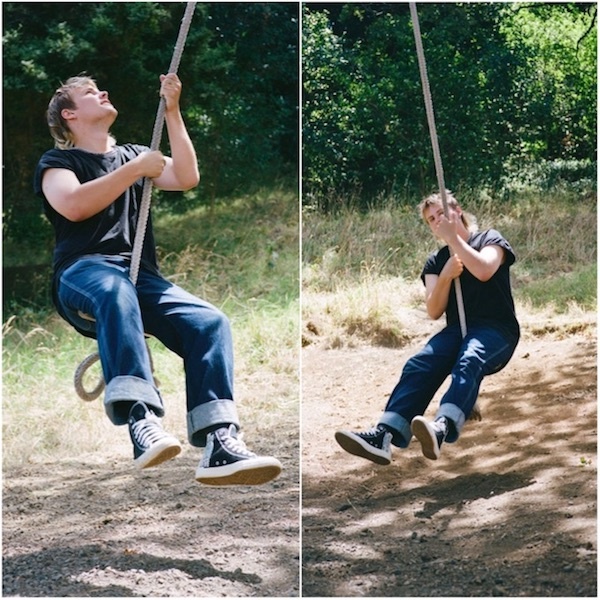
CDM: How do you think your relationship with each other in the band helps you guys in your own individual lives?
THEO: I mean, those guys are like my family. So it's cool because I spend a relatively large amount of my time with all of them, and we have become closer in the last year or so, just through all of the stuff that we've done in trying to push forward with everything. I think it's important with the people that you want to spend the rest of your working life with, you need to be able to open up about stuff like that. Over the last few years, I've noticed really obvious changes in how much more open I can be about what I'm writing about, whereas a few years back, I might not have felt comfortable being able to explain why I wrote something or what I was feeling when I wrote it. I think just being more comfortable around people allows you to be a bit more confident and comfortable in talking about stuff.
CDM: In a world where so much validation is sought for online, why is it important to realise that the most important relationship to nurture is the one you have with yourself?
THEO: It's a really complicated one to answer because I'm very much working on a lot of that stuff myself. When you're dealing with it, it's hard to see why you bother sometimes. I think a lot of the things with having problems with your mental health is struggling to find... like, you know things, but your brain still goes, 'You don't need to do that.' Or, 'You don't need to look after yourself, you can just keep doing the same shit and still feel shit about it.' But by the same token, I think it makes it hard because you have to work so hard to get yourself out of holes like that, but it is important and when you do it you notice such a big difference in how it makes you feel, but at the same time it's almost impossible to like pull yourself out of those sometimes. I think that taking time for yourself is a stupidly important part of being happy. It's so difficult to do. I think a lot of the time, especially with this generation of people, we take for granted that most people just generally feel like shit a lot of the time. Between the world going to shit and there not being enough professional help for mental illness and not enough support, I think it's really easy to get complacent in whatever you're doing, and it's super important to look after yourself because you notice such a big difference.
CDM: Do you think social media is beneficial or negative in relating to mental health?
THEO: I think it's a real grey area. Sometimes it's great, sometimes it sucks. I know that for a lot of people, Twitter is a big one in helping them find people to talk to and being able to vent your frustrations. But then I find some parts of Twitter are just horrible and I wish that I had never signed up for it. It's the same with Instagram too. I think social media is, in a way, what you make of it. I know there's a lot of people who spend a very large portion of their time on social media, which I do not have anything against because I completely understand what that's like, because I did that a lot when I was younger.
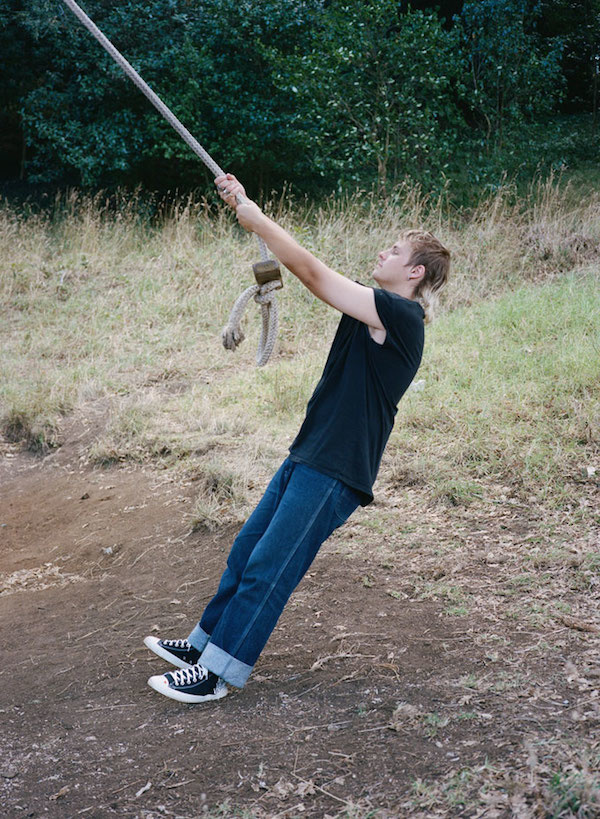
CDM: It's designed to be addictive as well.
THEO: Yeah, and that's a part of it that I really dislike, but also I feel like you can't have it without it being like that. Part of what makes it so great, to be honest, is that you can just see anything and anyone that you want, whenever you want to, except for people who refuse to partake in social media. I think that it's a relatively crucial part of the way we communicate now, but there's a lot of shit that doesn't work with it. I think that it's really easy for it to help you pull yourself out of holes, but also really easy to put you back in the hole.
CDM: What does the idea of self-love mean to you?
THEO: Self-love is kind of just about taking care of yourself and accepting that you're an individual person with individual ideas and thoughts and the ability to do what you think is good for you. You could never make someone love themself. That's all stuff that comes from you as yourself. People's reactions when you tell them that you have, whether it's body image problems or general anxiety or imposter syndrome, people's first reactions are to be like, 'No, I think you're amazing.' I always appreciate that, but it never makes any difference because there aren't a whole lot of super accessible tools out there for helping you figure out those things, like putting you on the right path towards figuring it out for yourself. There's a lot of stuff that's just, 'You need to think this way, and you need to think this way,' and that just doesn't help. That's not giving anyone the motivation to want to help themselves. So I think self-love is when you are completely confident in who you are and don't feel like you have to make compromises on your personality. I think it's about kind of owning who you are for yourself rather than anyone else. It's easy to put on a front and be like, 'Yeah, I know who I am, and I'm owning this.' It's something where you feel like you don't have to change yourself to be around other people, and just enjoy spending time with yourself
CDM: What are your self-care tips?
THEO: I like being clean. Having a good shower, using body wash, and washing your hair. Getting all the dirt out from under your fingernails. I feel good after I clean my workspace and my living space. I don't do it a whole lot because sometimes it's really hard to find the motivation to clean up all your depression mess, but I think that doing that stuff is a good start, because it helps you feel more organised and less like you're like flailing in the dark all the time.
CDM: And it helps clear your mind too.
THEO: Yeah! I don't think that everything has to be immaculate, but just being able to walk around without tripping over clothes is quite nice and it helps you feel more productive too, and when you're productive that often helps you feel a lot better about yourself. When you get things done for the day and you're like, 'I don't have anything else to do, I can just chill out and do what I want to do.' I also think that setting tasks for yourself that are achievable. It's really easy to look at what you have to do for the day and go, 'Oh, fuck that's so much.' But when you cut it down to like, 'I'm just gonna think about this and then after this, whatever.' And allowing yourself to be proud of yourself for something that you've achieved even if it's a small thing. Like, if you clean your room, it's not much, but I did spend an hour tidying! You've got to give yourself credit for that too. It's really important to give yourself credit for the stuff that you do. I think that's a big part of looking after yourself, just the way you think about the tasks that you've done. Also going outside, it sounds real fucking cheesy, but sometimes when you're cooped up in your room, you don't realise how in your own head you can get. So it's good to just even walk around and even if you don't feel any better afterwards, it's still something. Also buying yourself new clothes is nice sometimes too, like changing up how you look a little bit - it's something that makes you feel like you've progressed in some way. Sometimes I'm just sitting at home and I'm like, 'I don't feel like a confident, comfortable person at all.' Sometimes that's when you might have to sell something and replace it with something that you like more. Feeling comfortable in your clothes is important. When you're in something that you like the look of but you don't feel comfortable in it, then because you don't feel comfortable, you're like, 'Fuck, can everyone notice that I'm uncomfortable?' Yeah, I think that wearing clothes that you like and that are comfortable is super important.
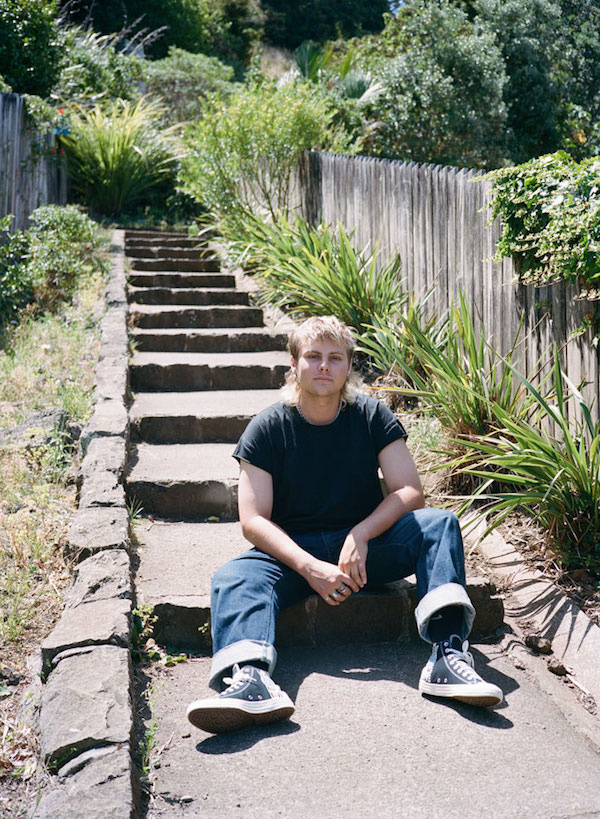
CDM: Do you think as a young man, it’s equally as important to place value on self-love? A lot of branding around self-love is focused on women.
THEO: 100%. Yeah, it should just be the same for everyone. We have a big mental health crisis with everyone here, but also, particularly young men in New Zealand. It's really sad some of the statistics for New Zealand in our mental health record - it's not good, it's a bit bleak. That culture needs to change.
CDM: Do you find songwriting a way to work on your relationship with yourself? It’s kind of like learning about what emotions you’re feeling.
THEO: Yeah! It's almost like killing two birds with one stone when you're writing because on one hand you're achieving something, which is nice, but also on the other hand, it's really nice and therapeutic to be able to put something down, even if it's in your phone, or in your voice memos or on paper. Putting things down in a tangible way, I enjoy that part of it. I find that that's helpful for me.
CDM: Do you think that in any relationship, it’s important to prioritise yourself? Not even in a selfish way, but just in a way that your own mental wellbeing is important too.
THEO: Definitely. I know a lot of the culture around relationships is that you put the other person first and that's nice and romantic in theory, but it's also kind of dumb because people just don't think about what's going on with themselves. It's really hard if you're someone that struggles with mental illness, or even if you're not, it's often really complicated being around people who are struggling with similar stuff. I think often a lot of the time people are like, 'Oh, yeah, I need to fix this person.' But actually what you need to do is more just facilitate an environment where they feel comfortable in helping themselves. Whether that's just letting people open up to you or just listening. People often put so much pressure on them, especially if they've struggled with mental illness themselves because it's so easy to put loads of pressure on yourself because you need to help this person. The thing is, it's really great to help people, but you actually need to acknowledge that you also need support too. If you supporting someone else is really fucking with the amount of time that you can spend helping yourself and feeling good, that's a point where you need be honest with yourself and say, 'I actually can't, I don't have the emotional energy to give this much support to someone. I need to actually look after myself too.' Which is hard, because you don't want to tell someone that you actually can't help them. But sometimes just letting people sit there and vent to you, you don't have to even really talk. Often that's the most important part in talking about that stuff, is just getting it off your chest.
CDM: Why do you think music can have such an emotional effect/connection with people?
THEO: Because people can relate to it. If it's not relatable it doesn't stick, at least in music. I think that people just love feeling like other people are just like them. Dealing with mental illness all the time makes you feel like you're all alone, so being able to clock in with how someone else is feeling and you're like, 'Oh shit, I'm feeling that way too,' it's a big part of it.
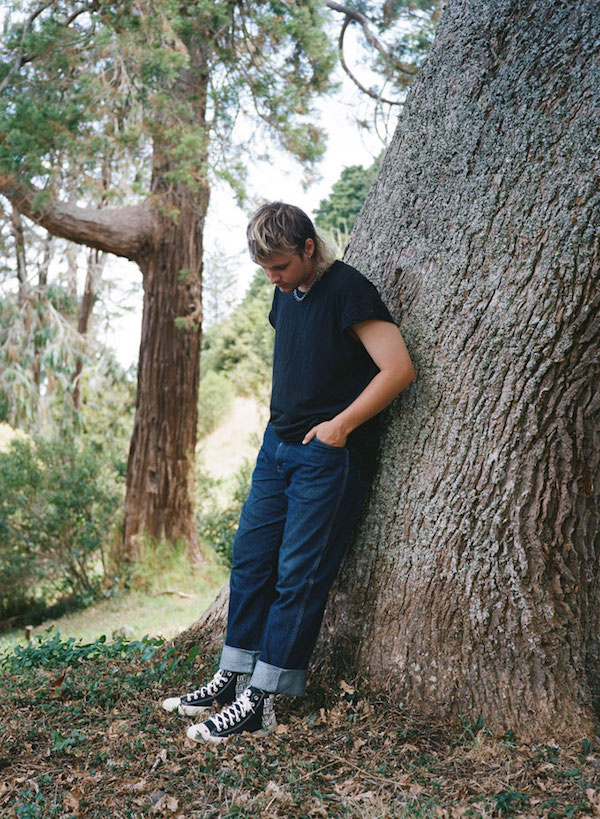
CDM: Is there a song (any song) that you personally like to listen to when you're sad to help make you feel better?
THEO: Yes! A lot of it kind of changes. I like listening to really aggressive music when I'm a bit upset. On the other hand I like listening to disco, or upbeat dance music is great. Then just letting yourself dance a little bit, I find will often make me feel a bit better, or you can go commit to it fully and listen to something really fucking depressing.
CDM: Why is it important to love who you are and what you do?
THEO: Because it gives you motivation to do it more. I think if you're doing something you don't enjoy, you're not going to be particularly passionate about it. And there's stuff in everything that is not enjoyable, you can't have your cake and eat it too. You're not just gonna be happy all the time. Even if you get to a point of being completely happy with who you are and love yourself. Doing something that you know you enjoy, even if you don't feel good about anything at the time, sometimes will just pay off in the future in small ways. Often at the time, you won't realise that you're kind of having an all right time until afterwards and be like 'Oh, actually, I didn't mind just doing some of that for a bit.' It's really easy to be like, 'I'm fucking useless at this. I'm not gonna do it. I should just give up.' Sometimes just pushing yourself to finish something, even if you're not feeling it, is good.
Converse's 'Love Fearlessly' collection is available now - either online at converse.com.au and in-store at Converse Sylvia Park, Converse Manukau, Converse St Lukes and selected retailers across the country.



 Converse
Converse